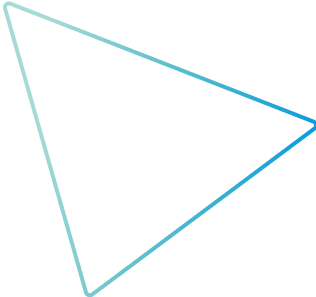With his installation “I knekken (In the Crack)” Admir Batlak exhibits in SOLO OSLO, an exhibition series where MUNCH highlights young contemporary artists. The artist himself has been given the opportunity to work in Edvard Munch’s studio at Ekely, while at the same time there has been a double-digit number of working days at Canon’s test and production center in Holmlia, Norway.
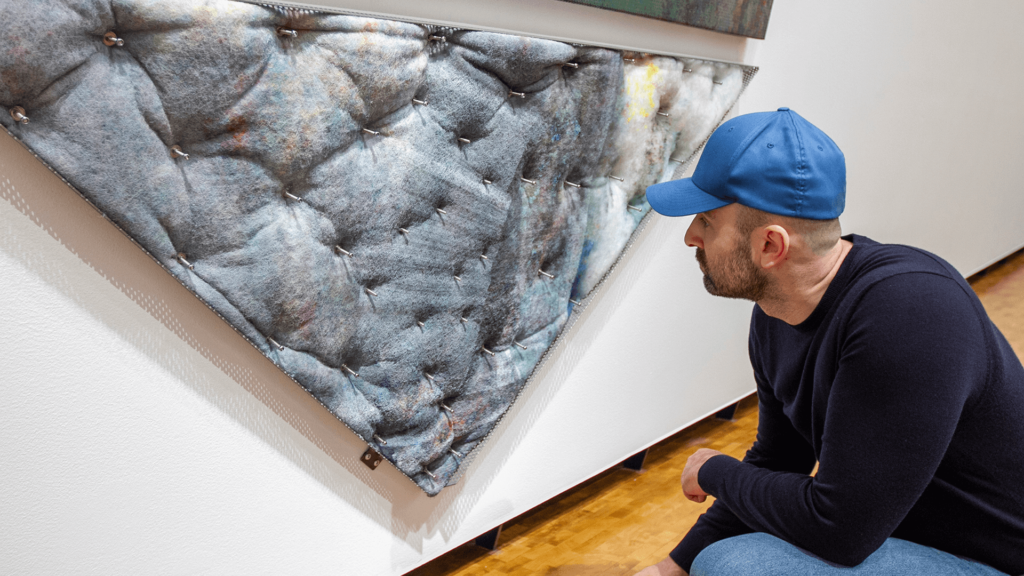
Print collaboration with Canon
We meet Admir Batlak a few days after the exhibition has opened. The likeable artist with a Bosnian background does not hide that he is satisfied with the reception the exhibition has received, and with the cooperation he has had along the way with Canon.
“Canon gave me access to its print technology and added valuable expertise around ink, print and materials. The result has been a series of picturesque prints on wadding, PVC foil, vliesofix and sequins”, he says. Admir has particularly appreciated the patience and artistic understanding shown by Canon.
“By nature, I am rarely completely satisfied, therefore I am very grateful for the patience and continuous enthusiasm Henning Hagelund has shown throughout my process”, says a satisfied artist when we meet him in MUNCH’s exhibition room on the tenth floor. The distinctive room is located exactly where MUNCH in Bjørvika gets the characteristic “crack”, which has also given Admir’s project its name.
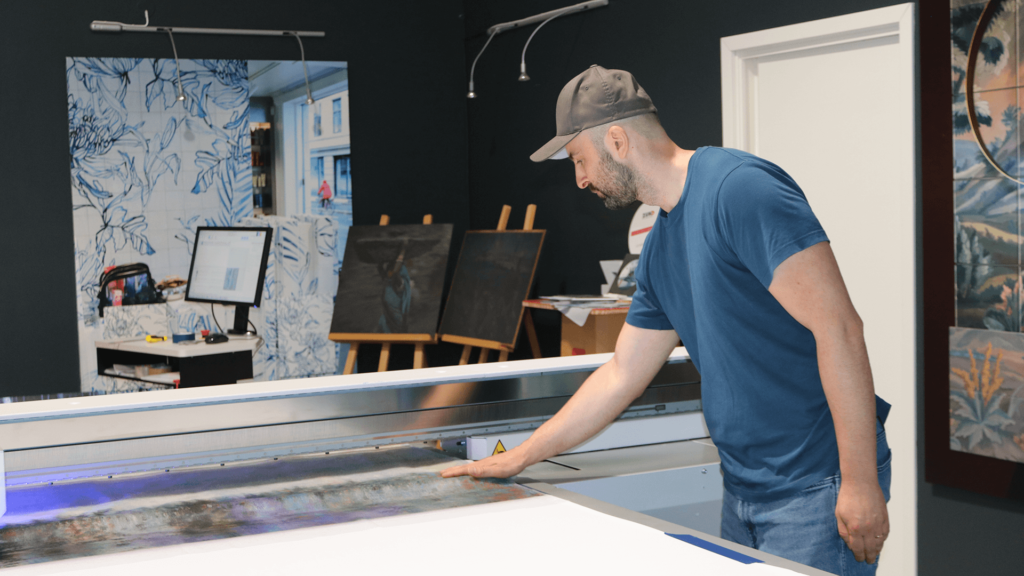
Admir Batlak has worked closely with Canon’s Henning Hagelund with printing on various materials. Using the Canon Arizona 1380 XTF, which is the latest addition to the Arizona family with the pioneering FLOW technology, they have printed directly on materials such as wadding and PVC foil.
Worked in Munch’s studio at Ekely
The entrance to the exhibition room has been rebuilt for this exhibition, so that visitors enter in the middle of the room. There they are met by works of art that are at the intersection between monument, sculpture, and installation. For several years, sequins have been a regular feature in Admir’s projects. This time, the small, shiny pieces are used both as building blocks assembled using textile glue and an iron, and as scanned starting points for prints on wadding and PVC foil.
“I have fixed the printed materials on perforated metal plates that refer to the museum’s facade. It was a move to bring the outside of the building into the exhibition space”, says the artist, who during the work has had the opportunity to use the studio at Ekely, where Edvard Munch both lived and worked.
“It has felt like a luxury to work at Ekely. The same has been the case with gaining access to Canon’s test and production center. In total, there were 11 visits to the Canon Image Factory, always with an invitation to test out different ideas, and no restrictions on impulses along the way”, says the contemporary artist who came to Norway as a refugee from Bosnia as an 11-year-old.
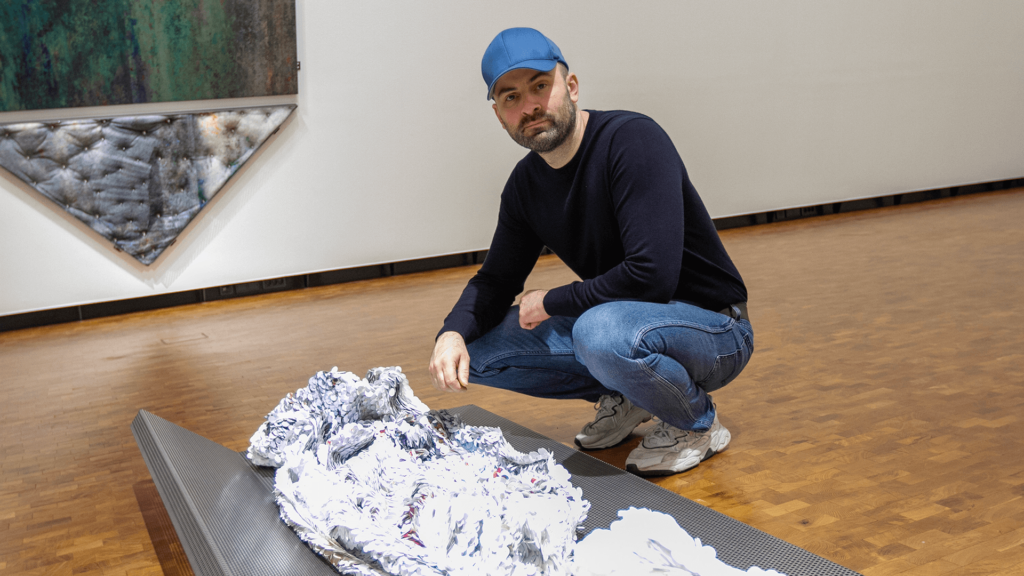
The exhibition “I knekken” is close to the ideas Admir Batlak presented to the jury of SOLO OSLO. The work moves at the intersection between monument, sculpture, and installation.
Inspiration from partisan monuments
Admir Batlak has long been concerned with the post-war monuments in the former Yugoslavia, so-called spomeniks which also existed in his hometown Mostar. Erected as a tribute to brotherhood and unity, these partisan monuments have been among the reference points for all his artistic projects. The same applies to the fascination with textiles, shiny sequins, and the desire to create surfaces that play with the public’s expectations.
“My work is a collage of many references which I hope opens up some new thoughts about materiality and monumentality, ideals and identity,” says Admir Batlak.
L: Several different expressions were tried out before the final work was ready. Here, details printed on glass-clear foil and glued onto perforated steel plates. This gives a very special effect that refers to sequins, which play a central role in Admir’s production.
R: The picture shows details of where was printed directly on wadding.
Eye opener for Canon
Henning Hagelund at Canon has worked with large format printers for a lifetime. In recent months, he has allowed himself to be impressed by how the artist Admir Batlak has played in teams with the Canon Arizona flatbed printer.
“Admir has really challenged Arizona technology’s unique possibilities for quality printing on both textiles and harder materials, and he has always been on the lookout for new opportunities. For us at Canon, it is easy to identify our traditional users and customer groups, while Admir has opened our eyes to the fact that there are always new areas of application”, notes Henning, who was of course present at the opening of SOLO OSLO at MUNCH in Bjørvika on 29 September.
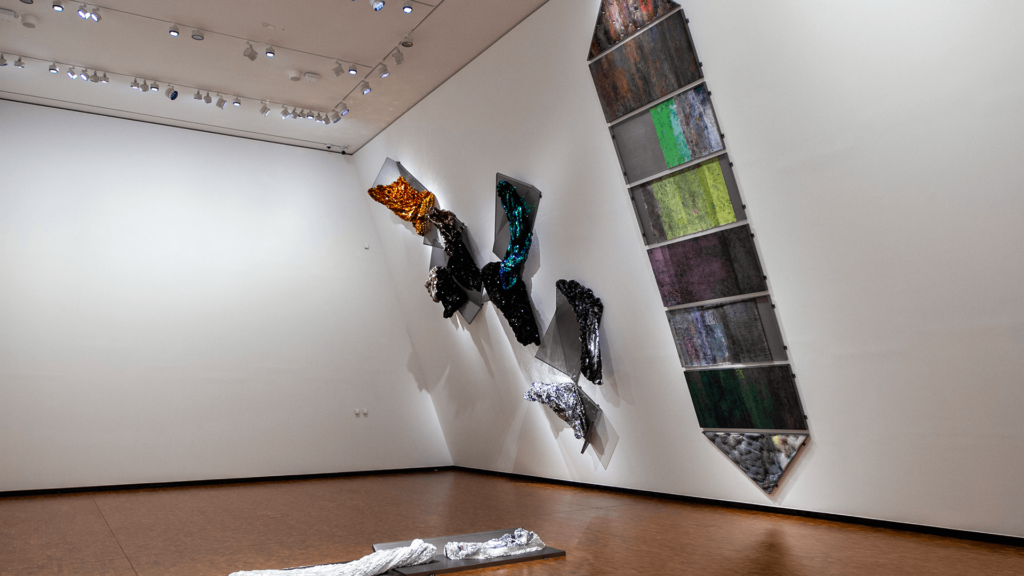
The exhibition space in MUNCH is 8 meters high, and the artist Admir Batlak therefore had to think in larger formats than he has done in the past. He chose to concentrate his works on the distinctive sloping wall and let the audience in in the middle of the opposite wall.
SOLO OSLO
SOLO OSLO is a series of solo exhibitions supported by Talent Norge and Canica, and part of MUNCH’s commitment to contemporary art. The exhibitions are shown in the distinctive display room on the museum’s 10th floor, where the artist Admir Batlak exhibits until 4 February 2024. Admir Batlak moves in the intersection between fashion, sculpture, and installation, and he often experiments with different craft traditions. In his works of art there are references to various stories, social movements, and popular culture. He allows different elements to coexist in his art, and in that way explores questions of taste, ideals, and identity.
Admir Batlak
Admir Batlak was born in the Bosnian city of Mostar and came to Norway as a refugee from the war in the Balkans when he was 11 years old. He has an education as a fashion designer from the Istituto Marangoni in Milan, and a background both as a fashion designer and artist. Previously, he has exhibited in Galleri Riis and at “Høstutstillingen”, where in 2020 he was awarded the Norwegian Art Association’s debutant prize for the sculpture series “A New Tomorrow”.
More information available here.

